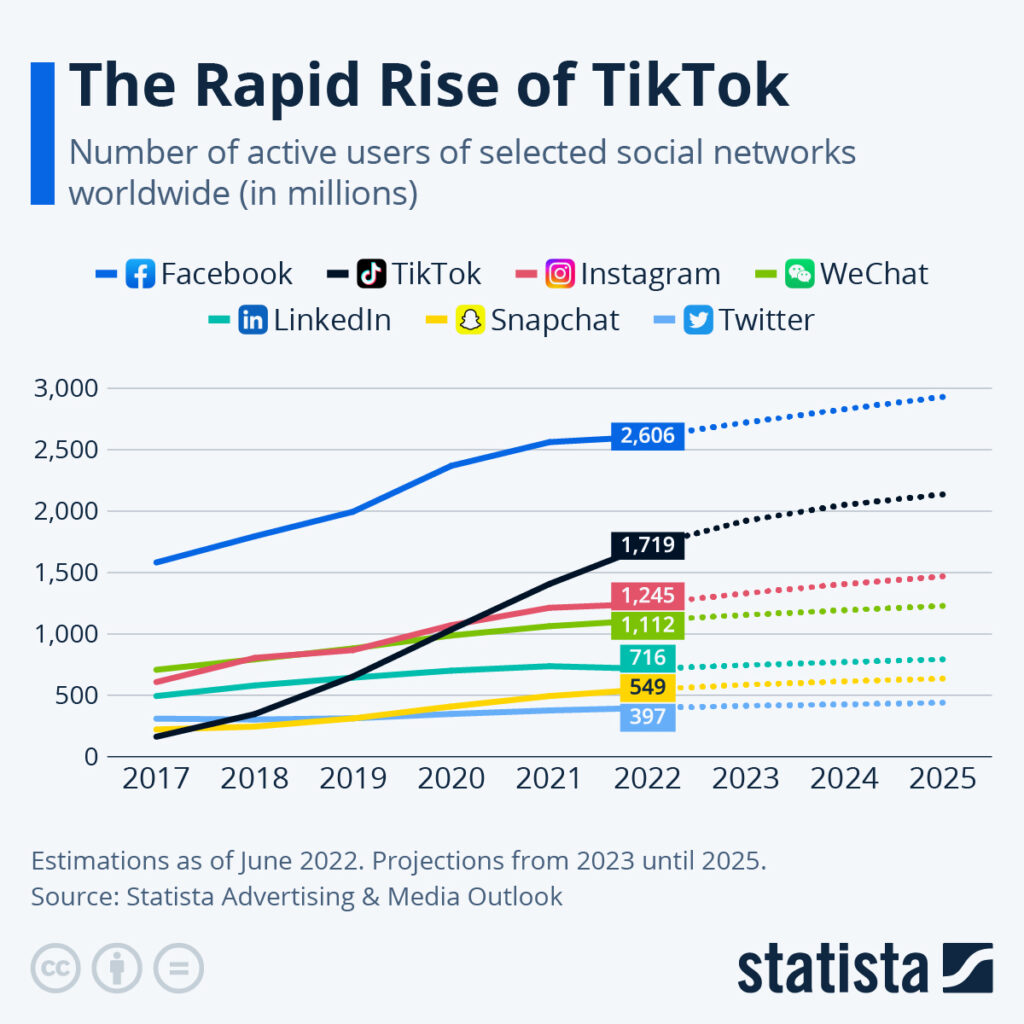A recent survey conducted by the Pew Research Center reveals that nearly 60% of Americans perceive TikTok, the Chinese-owned social media app, as a threat to national security in the United States. The platform has been under increased scrutiny from lawmakers and the public due to concerns over its data usage practices.
The survey, which gathered responses from 5,100 American adults in mid-May, indicates that 59% of the participants consider TikTok to be either a major or minor threat to U.S. national security. In contrast, 17% of respondents do not see the app as a threat, and 23% were unsure about its implications.
When analyzing the results based on political affiliation, it becomes apparent that Republican and Republican-leaning respondents were slightly more likely to view TikTok as a threat, with 70% expressing concern. However, 50% of Democrats or Democratic-leaning respondents also shared similar apprehensions about the app. Republicans exhibited more concern about how TikTok utilizes the data it collects from users.
The survey findings highlight age as a significant differentiator in perceptions. Only 13% of individuals aged 18 to 29 considered TikTok a major threat, whereas 46% of Americans aged 65 and older viewed it as a significant concern.
Pew also noted that TikTok users were less likely to perceive the app as dangerous, with only 40% considering it a threat. However, the survey did not provide data on the number of non-TikTok users who expressed concerns.
It is worth noting that TikTok boasts a significant user base in the United States, with approximately 150 million Americans utilizing the platform as of late March. This accounts for nearly half of the country’s population.

The concerns surrounding TikTok’s Chinese ownership and its potential impact on national security have prompted discussions about potential bans. While a nationwide ban has yet to be implemented, various states and Congress have restricted the use of the app on government devices due to security apprehensions. Montana recently became the first state to pass a complete ban on TikTok, leading the app to file a lawsuit challenging the ban’s validity. TikTok argues that such a ban would require unfounded speculation and unprecedented measures, as there is no evidence to support claims that the app poses a risk of providing information to China.
Nevertheless, concerns persist regarding the app’s data practices. In June, five Senators introduced the Protecting Americans’ Data From Foreign Surveillance Act, aiming to prevent the export of substantial amounts of Americans’ personal information to foreign adversaries and safeguard citizens’ right to privacy. TikTok executives continue to assert that the Chinese government has never requested U.S. user data.
As the debate over TikTok’s impact on national security continues, the public’s perception remains divided, with a majority expressing concerns about the app’s potential implications.











